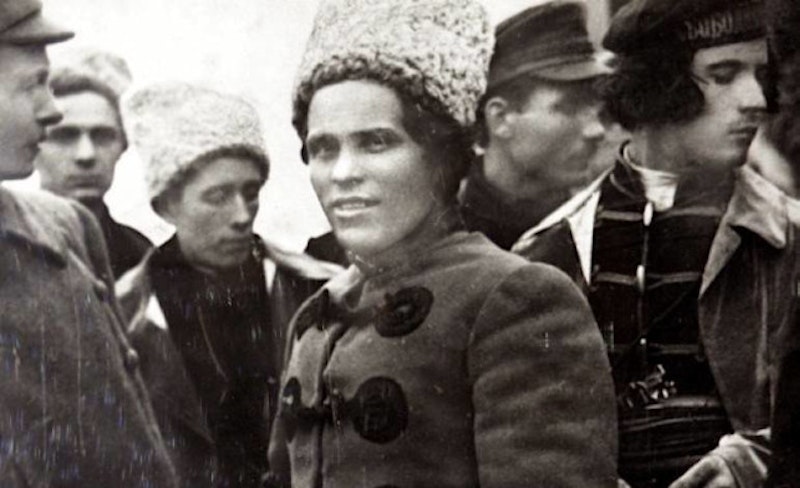Jules’ parents escaped Ukraine in 1919. Five years before the Immigration Act of 1924. Before the fears of a changing United States prompted government to close off the majority of European immigrants from Eastern and Southern Europe. Philip and Nina were both 10 years old. The Russian Revolution upended the country, thrusting the people into civil war. The pogroms started in the cities and gradually crept up upon the villages. Jewish communities that had co-existed mostly peacefully among their neighbors were suddenly getting wiped out. Podolia was one of those places.
Nina’s family was massacred in front of her. Nina escaped into the forest and later, found her way toward a clearing. The road led to the home where Philip’s family lived. Nina knew Philip, the shy boy with the deep-set eyes and solemn expression. She ran to his home and explained the terror. Early the next morning, they all fled their village. Leaving Podolia and escaping southwestern Ukraine, heading for the Polish border, watching through the windows of the train as the wheat fields disappeared from view.
The train was packed with terrified people. Every time the train rattled to a stop, the passengers around Nina huddled in fear. Nina instinctively clung to Philip, who clung to his mother, who clung to his father. Eventually, they made it across to Poland, which looked no different than northern Ukraine, but would lead to a new and entirely different life.
What was a border, but an imaginary line between danger and safety? Between one brutally cold winter and another? Two months later, they boarded an impossibly crowded ship and woke up in a strange new world, debarking in Philadelphia with five of Philip’s relatives.
Thirty years later, Jules and his brothers heard their parents telling this story, one of the rare moments his parents took turns sharing the storytelling. In front of the fireplace, Jules would gaze into the flames, transfixed by the dancing orange light while he listened. Ukraine. The train to Poland. The boat to Philadelphia. The new life. Hearing the story, he grew to understand his mother’s manic episodes, her underlying sense of doom.
As Jules heard about the war in Ukraine, that vague sense of panic he’d known in his childhood came alive in him again. That fear kept Nina alive, and in turn, made their lives possible. Maybe Nina had been unable to sleep that night. Maybe she’d lived when they all died because of her anxiety. She’d never spoken about the details of that night, only that she’d escaped.
Watching the news of Russia’s invasion, and knowing that the world would never be a safe place, not really, Jules wished his brother Morty were still alive. He wished Morty could make him laugh about all of that. None of them had ever been back there. Podolia. Jules had looked it up on the map. Not far from the Moldovan border. There were supposedly relatives in Odessa.
Nina died before Philip. Lung cancer at 73. She’d smoked to calm her nerves. Sam had moved their dad into a nursing home in the same suburb of DC where he lived. Jules was in his early-40s then. Lisa had just taken off for Spain. A newly bewildered single parent, Jules took Reva to visit her grandpa Philip. He sang songs with the other elderly folks when the retired piano teacher visited them on Wednesdays. One of Jules’ favorite memories came from that visit. Jules put on Philip’s Hoagy Carmichael album. Philip had softened by then. He sang “Rockin’ Chair” to 14-year-old Reva.
Philip called Reva over to sit next to him and crooned that slow melody along with Hoagy: “Can't get from this cabin/Ain't go nowhere/Just sittin' me here grabbin'/At the flies 'round my rockin' chair/Old dear aunt Harriet/How long to Heaven she be?/Send me a sweet chariot/For the end of the trouble I see.”
Over the years, Reva reminded Jules of that visit. How Grandpa Philip seemed like a sweet old man. Jules recalled thinking about how hard it was to be a sweet old man when he was living through the pressures of middle age. He wished he’d seen more of that sweetened version of Philip in his own life.

